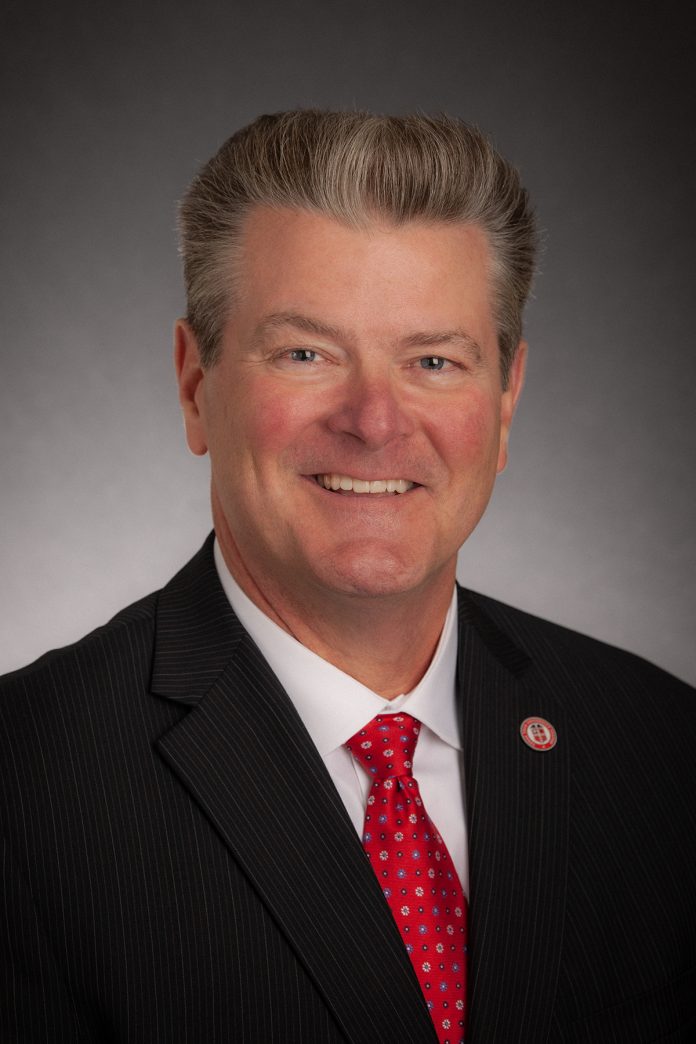Texas Tech University System Chancellor Dr. Tedd L. Mitchell issued the following letter Thursday to leadership and stakeholders throughout the TTU System and its five-component universities.
Letter from Chancellor Mitchell:
Dear Texas Tech University System family, friends and alumni,
I write today to share updates and information about several significant milestones we achieved for the Texas Tech University System and our component institutions during the 88th Texas Legislature.
We entered the session in January with several legislative priorities and a list of exceptional item requests for our universities, and I’m happy to share that we secured many of these items. Of note, the conclusion of the regular session promises ongoing legislative support not just for the TTU System, but for higher education, health care and research across the state, which is evident in the additional higher education affordability funds.
I want to express my gratitude to our legislative leaders at the Capitol, starting with Gov. Greg Abbott, Lt. Governor Dan Patrick and House Speaker Dade Phelan, along with our strong West Texas delegation and our elected officials who are champions for us and the communities we serve. Since the end of the session on May 29, the Governor has signed numerous bills into law, including House Bill 1 – the General Appropriations Act, which allocates state appropriations to our component institutions for the 2024-25 biennium.
Included below is information about several funding items that will affect our system, along with information relating to the landmark Texas University Fund (TUF). This November, Texans will vote on the constitutional amendment to establish the TUF and appropriate more than $3 billion for this new fund.
COMMITMENT TO FUNDING GROWTH & ENHANCED FUNDING RATES
An enhancement to higher education formula funding to address inflation resulted in a 6.7% increase in statewide funding across our general academic institutions.
Enrollment growth at the health-related institutions was also funded.
ENHANCED SUPPORT FOR GRADUATE MEDICAL EDUCATION & OTHER HEALTH CARE PROVIDER PROGRAMS
Funding to address the expansion of Graduate Medical Education, the Nursing Shortage Reduction Program and Health Professionals Loan Repayment programs are at an all-time historic high.
ENHANCED SUPPORT FOR THE TEXAS CHILD MENTAL HEALTH CARE CONSORTIUM
Funding has been increased from $118 million for the biennium to $280 million.
ENHANCED SUPPORT FOR COMPREHENSIVE REGIONAL UNIVERSITIES
The Comprehensive Regional Universities formula is funded at $71 million for the biennium, a $51 million increase from the previous biennium.
INCREASED SUPPORT FOR OPERATIONAL COSTS
Funding for the Higher Education Group Insurance Program is increased from 78.6% of the ERS rates to 88.6%
Funding for Hazlewood Legacy Exemptions for the 2024-25 biennium is $214.9 million which should help the institutions cover 72% of the foregone revenue.
ESTABLISHMENT OF PERPETUAL RESEARCH FUNDING
Thanks to the efforts of our legislative delegations, we will see a proposed constitutional amendment for the Texas University Fund (TUF) on the state ballot this November.
If the measure passes, the TUF will be established with an initial investment of $3 billion, plus the current National Research University Fund (NRUF) balance of $900+ million, to support research institutions including Texas Tech University, University of Houston, University of North Texas and Texas State University.
The initial distribution to TTU for FY2024 is projected to be $44 million.
- Each year, an additional $100+ million from the ESF (Economic Stabilization Fund, also known as the Rainy Day Fund) will be invested into the TUF, creating a resource that will continue to grow in perpetuity as more schools become eligible to receive funding.
- To become eligible for a share of the TUF, institutions will need (for three preceding consecutive years) a total $20+ million in private and federal research expenditures and award at least 45 research doctoral degrees.
- We will continue to see this initiative through to the finish line and look forward to the support of our fellow Texans at the ballot box in November.
SUPPORT FOR UNIVERSITY EXCEPTIONAL ITEM REQUESTS
Texas Tech University: $50 million ($41 million in new funds + $9 million in existing funds)
- To support investments in academic excellence and student success with institutional enhancement.
Angelo State University: $2 million
- For Commercial Aviation Pilot Training to address pilot shortages through innovative flight training instruction.
Midwestern State University: $2.4 million
- For STEM Expansion/Center of Excellence to address workforce needs.
Texas Tech University Health Sciences Center: $10 million
- For the development of an Institute of Telehealth and Innovation to address rural health needs through telehealth services, research and academics.
Texas Tech University Health Sciences Center El Paso: $65 million
- For the development of a comprehensive oncology center partnership on the Medical Center of the Americas campus.
I also want to thank our teams at the TTU System Administration and at each of our component universities for their leadership and commitment to supporting our legislative efforts throughout the session. I want to recognize our university presidents, TTU System Governmental Relations team and their counterparts at each of our institutions for their tireless work this session, which included tracking more than 1,200 bills pertinent to our entities as they made their way through each chamber.
State funding continues to be a critical component to providing opportunities for students and supporting our faculty and staff with the tools needed to support the missions of our institutions and continue offering the highest quality of instruction as we educate the future generations of Texans.




